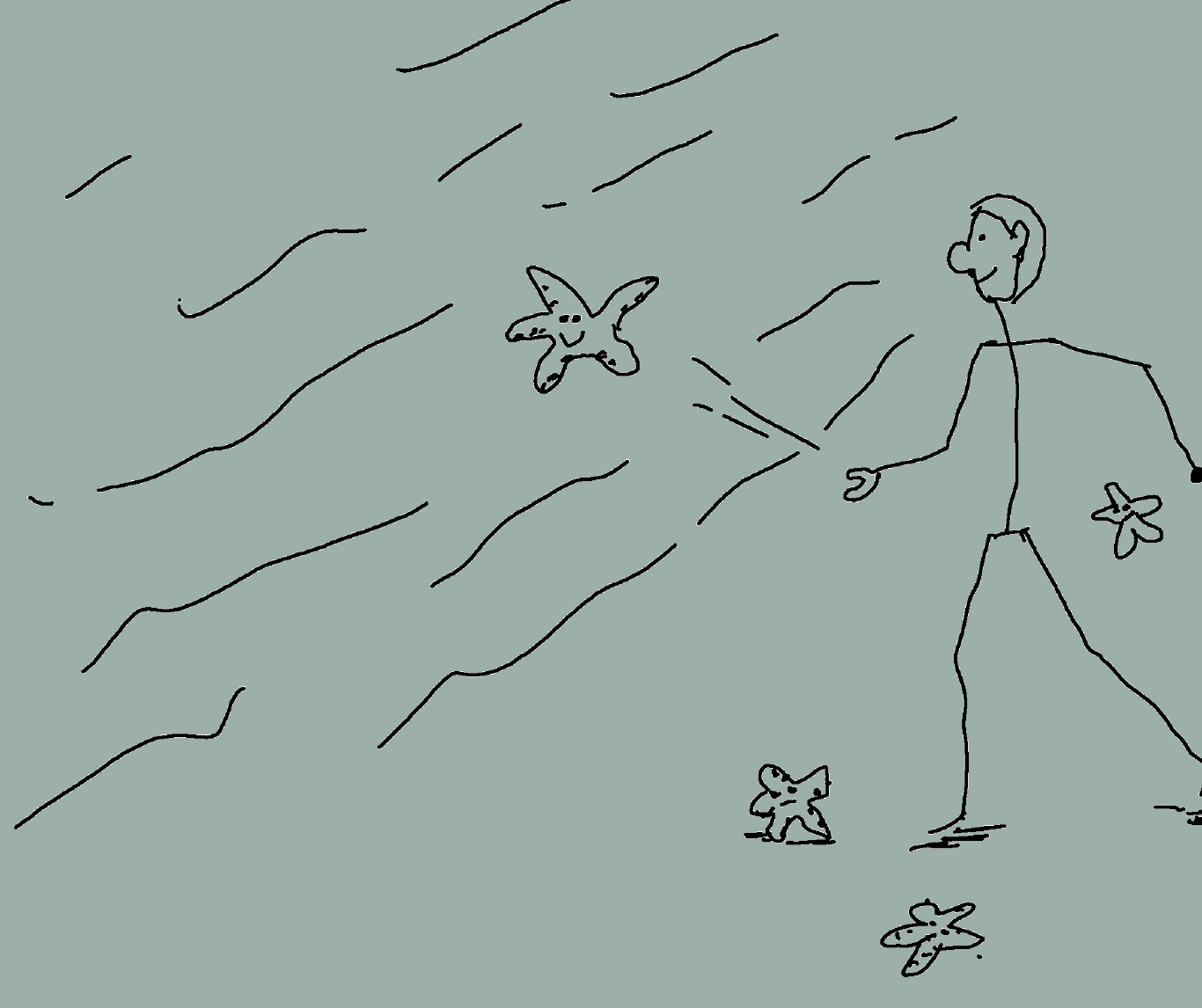Do good things, don't worry about scale, don't let systemic issues stop you

Estimated reading time: 5 minutes
This is a lesson that took me a decade to fully ‘get’. You don’t have to worry about the systematic issues to bring change. You can make changes as an individual at a small scale.
When I want to be involved with charity, I get overwhelmed by the scale of the issues involved. My friends find themselves in similar situations: a desire to be useful but overwhelmed by the nitty-gritty. They turn cynical when they see issues pop all over, with seemingly no end. They do a short stint as activists, and convince themselves that everything is broken. They fall in the trap of being overwhelmed by systematic issues. They figure their contributions are pointless in the face of daunting challenges. They give up.
Now that I’ve lived a bit more, I think that attitude is self-defeating and unproductive.
In high school, my friend and I started an after-school support program. It was targeted at middle school students from a nearby community school.
The students there were children of carpet factory workers. They came from poor families. They didn’t find much enthusiasm or support for their education at their homes. They were contributing financially to their families, despite being in their early teens.
Their tests scores and motivation were understandably low.
The students’ issues were mostly systematic. They were’nt lazy or unmotivated or uninspired. Circumstances had conspired against them. The school was underfunded, the families were poor. My friend and I were teenagers, and in a big-picture sense our contribution would be insignificant. On the face of overwhelming systematic issues, what change could we possibly make?
That’s the concept that was difficult for me to understand. Any positive change is a good change.
People forget to consider ‘the human factor’ at scale. My classmates showed up and interacted with the youngsters, person to person, showing up every day. We were making a difference to the people we showed up for. We organized library classes – we setup ‘remote library’– reading and play activities. The joy that we brought to the students made a difference. That was unrelated to the systematic issues. We didn’t change the world, we didn’t upend the system. It’s possible – even likely– we didn’t change the trajectory of a single life. But we made the days better for those students. We showed them a positive vision for a different future.
I used to think of scaling up my projects right at the start. That’s what led me down the cynical trap. How well is this activity going to scale up? How can we bring about the positive changes to everybody? How can we do it at a sustainable rate? Oh, this activity won’t scale up, how about I pick up something that does? That’s I how I thought. It wasn’t useful.
It took me a decade to understand scalability doesn’t matter. We don’t need to ‘hyperscale’ our charitable activities.
We have been shaped by global scale trade, the internet, and mass communications. We want to think of everything at the global scale. But scale doesn’t matter. If you’re supporting ten underprivileged school kids in your neighborhood, it’s a big deal. You shouldn’t worry about scaling your support to ten thousand children. You don’t need to scale out. You can only be mentoring one person at a time. Helping a single person for the rest of your life is still charitable.
Screw scale, screw skill. These are technicalities if you want to bring about positive change. Do things, right now. Seriously, screw scale, if that’s what’s stopping you from doing good.
If the ‘screw scale’ concept bothers you, allow me to reframe.
How many people can you cook for on a given day? And how do you cook? Do your cooking activities scale up? Can you serve 200 people over a year? How about a weekend? If not, what’s the point of you even cooking? The point I’m trying to make is, everyone can’t just do things that scale. If they could, here would be overcapacity of resources and skills, wasted potential. I don’t want to be a caterer. I like hosting house parties. I don’t need to be prepared to EVER host a wedding on short notice. That’s not my vocation. To be prepared otherwise would be a misallocation of resources.
Do things at a human scale. Help fulfill the immediate needs of those around us. That could be product needs, charity needs, or social needs. That is the way to get things done.
Look at problems from a human perspective, unless it’s your job to do otherwise. See the people who are suffering, and just help them. Do things that can’t scale. That’s what brings real change: helping people one person at a time.
